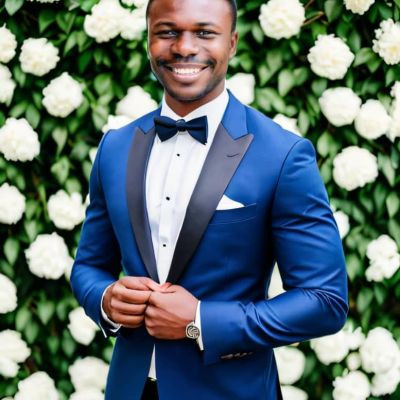Top 10 Greatest African Leaders of all Time
Hello Displorers, Welcome back to another exciting and fascinating video and thanks for watching. In today’s videos we are paying homage to some of the greatest African leaders of all time. Being a leader comes with great power. As history has proven, those who obtain great power can use it for evil. This form of leadership has resulted in large parts of Africa falling victim to horrible conditions such as slavery, disease, hunger, lack of access to clean water, and poverty. However, those with great power can also use it to bring good into the world. Some have been jailed in the process, while others have even died trying to make lives better for African citizens. That is what makes a leader a great leader. With their ability to communicate, delegate, and bring the spirit necessary to facilitate change in Africa..
If you are new here, welcome be sure to subscribe and turn on notification so you don’t miss any of our videos
In no particular order, here are the top 10 Greatest African leaders of all time.
10. Jomo Kenyatta
The first person to make the list is the first President of Kenya. Jomo Kenyatta was born of Kikuyu descent in Kiambu, British East Africa, which shares some of the same area as modern-day Kenya. he began his political career in 1929. As a representative of the Kikuyu Central Association, Jomo Kenyatta travelled to London, England as a lobbyist for protection of the tribal land.
Kenyatta furthered honed his political skills as he attended school in Moscow, Russia. He studied politics at the Communist University of the Toilers of the East. From there, he moved his education to London where he studied phonetics at University College London, as well as anthropology at the London School of Economics.
When Kenyatta returned home to British East Africa, he oversaw the school. He maintained his political aspirations by becoming elected President of the Kenya African Union. His main platform was to gain independence for Kenya from British rule. In 1952, this great leader was arrested for facilitating the Mau Mau Uprising, which saw Kikuyu-dominant militia rebel against the British. He was the prime minister of Kenya from 1963 to 1964 and became was president between 164 to 1978 hen he died. He brought stability and economic growth to Kenya.
9. Ellen Johnson-Sirleaf
Ellen Johnson Sirleaf became the first woman to be elected the head of a state in Africa. She was born in Liberia and attended the College of West Africa. In 1961, she moved to the United States to attend Harvard where she studied economics and business administration. Upon receiving her Master’s Degree in public administration, Johnson-Sirleaf immediately became a public servant in Liberia.
She started her career as an Assistant Minister of Finance from 1972 to 1973, before becoming a Finance Minister from 1980 to 1985, under the dictatorship of Samuel K. Doe’s military. Ellen Johnson was jailed twice and almost executed for speaking out. She was released and exiled for 12 years. During that time, she lived in Kenya and the United States. While she was gone, Liberia fell apart much in large to a civil war.
Meanwhile, Johnson-Sirleaf became a high-ranking economist for Citibank. When she returned to Liberia in 1997, she ran for President, finishing second. She was immediately placed back into exile by her opponent, Charles Taylor, who accused her of treason. Johnson-Sirleaf returned from exile in 2003, and became the chair of the Commission on Good Governance. Finally, she ran for President again in 2005. “The Iron Lady” won the election on November 8, 2005. In 2011, Ellen Johnson-Sirleaf was award the Nobel Peace Prize for carving a better future for women.
8. Samora Machel
This influential leader was born the son of cotton farmers in Mozambique. Throughout his childhood, Samroa Machel bared witness to his parents being forced by the Portuguese to tend the cotton fields. In the 1950s, they were uprooted from their homes to make room for more Portuguese settlers.
Samora was educated throughout mission schools. Upon finishing his schooling, the future leader declined a higher education and decided to become a nurse in the capital of Mozambique, Maputo.
During his ten years of nursing, he became radicalized. He joined the Mozambique Liberation Front (Frelimo) and was sent to Algeria to receive military training. Quickly rising through the ranks, Machel became the official leader in 1970, following the assassination of the incumbent, Eduardo Mondlane.
Once Mozambique became independent in 1975, Machel was their first leader. He brought some economic success to the area by refusing to sign the Nkomati Accord with South Africa. This allowed Mozambique to keep an economic relationship with the white minority government who was being pushed out by the African National Congress.
One of the main countries opposing the white domination was Zimbabwe, who ironically enough, Samora supported. Upon returning from a trip to Zimbabwe in 1986, hi























